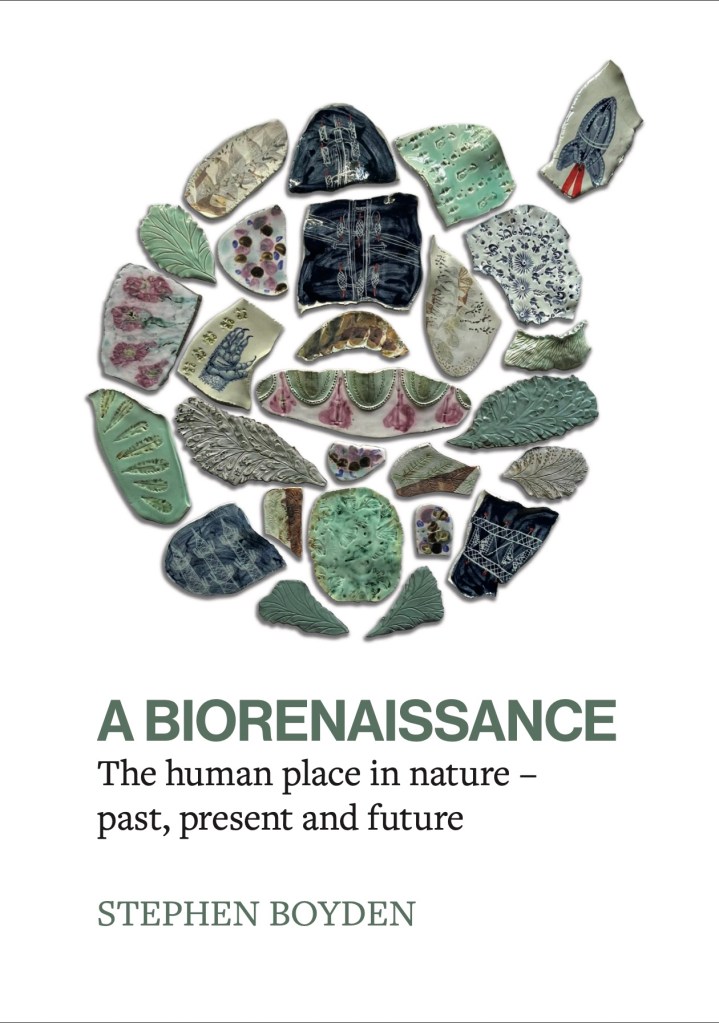This website is an outcome of my work in biohistory over the past 60 years.
Biohistory has been defined as the study of human situations, past and present, against the background of, and as part of, the story of life on Earth and the human place in nature. One important feature of the biohistorical approach is that it recognises the emergence of human culture as a new kind of force in biological systems.
In 2023 I published a little book called ‘A Biorenaissance: the human place in nature – past, present and future’ summarising my conclusions from this work. The most important of these conclusions is appreciation that the survival of civilisation will require revolutionary changes in the worldviews of the prevailing cultures across the globe.
This website presents a few further thoughts.
